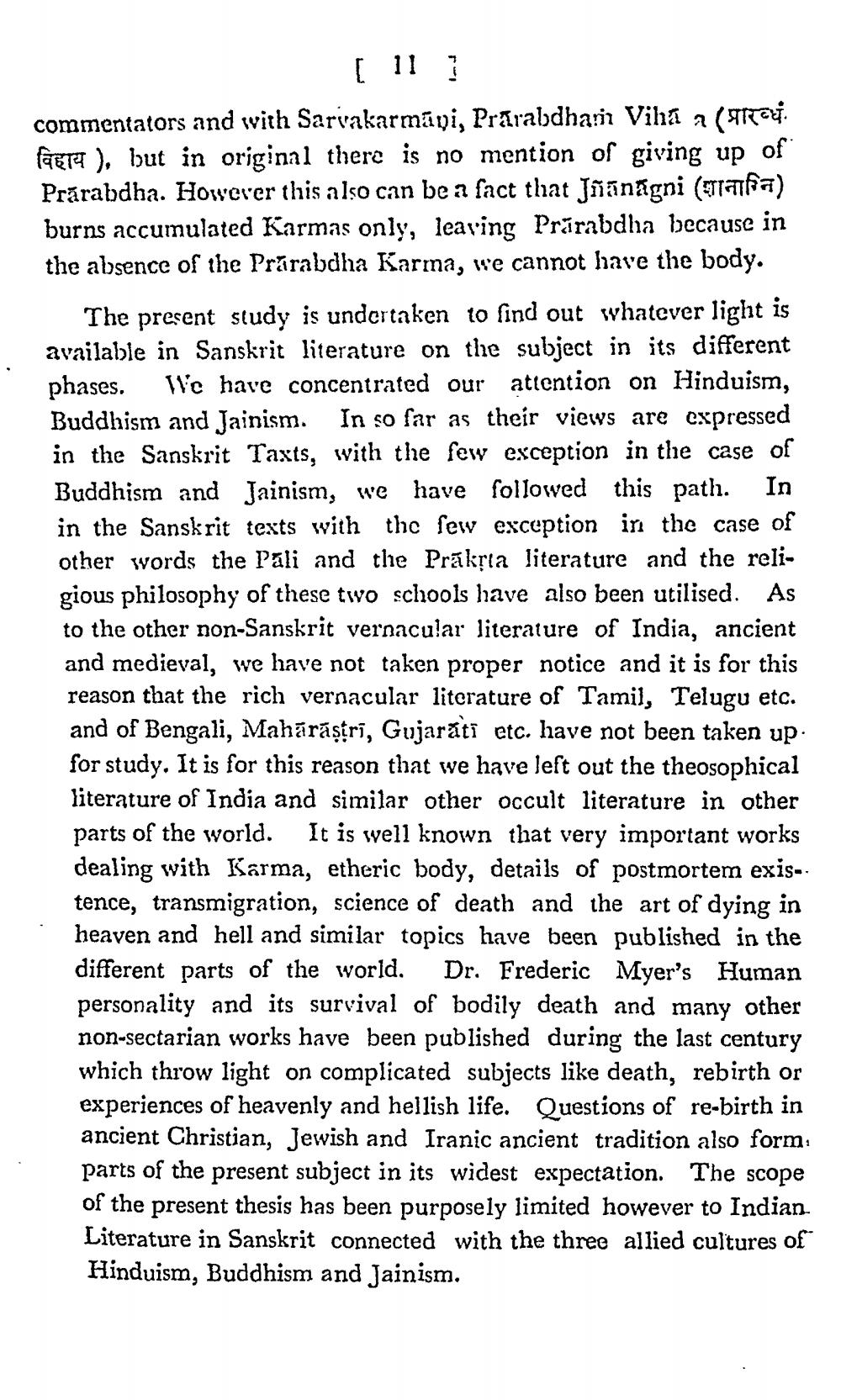________________
[ 11 ; commentators and with Sarvakarmáyi, Prarabdha Viha 2 (ARCH. facra ), but in original there is no mention of giving up of Prārabdha. However this also can be a fact that Jñanágni (917fa) burns accumulated Karmas only, leaving Prärabdha because in the absence of the Prärabdha Karma, we cannot have the body.
The present sludy is undertaken to find out whatever light is available in Sanskrit literature on the subject in its different phases. We have concentrated our attention on Hinduism, Buddhism and Jainism. In so far as their views are expressed in the Sanskrit Taxts, with the few exception in the case of Buddhism and Jainism, we have followed this path. In in the Sanskrit texts with the few exception in the case of other words the Pali and the Prākļia literature and the religious philosophy of these two schools have also been utilised. As to the other non-Sanskrit vernacular literature of India, ancient and medieval, we have not taken proper notice and it is for this reason that the rich vernacular literature of Tamil, Telugu etc. and of Bengali, Mahārāștri, Gujarati etc. have not been taken up. for study. It is for this reason that we have left out the theosophical literature of India and similar other occult literature in other parts of the world. It is well known that very important works dealing with Karma, etheric body, details of postmortem existence, transmigration, science of death and the art of dying in heaven and hell and similar topics have been published in the different parts of the world. Dr. Frederic Myer's Human personality and its survival of bodily death and many other non-sectarian works have been published during the last century which throw light on complicated subjects like death, rebirth or experiences of heavenly and hellish life. Questions of re-birth in ancient Christian, Jewish and Iranic ancient tradition also form: parts of the present subject in its widest expectation. The scope of the present thesis has been purposely limited however to Indian Literature in Sanskrit connected with the three allied cultures of Hinduism, Buddhism and Jainism.




